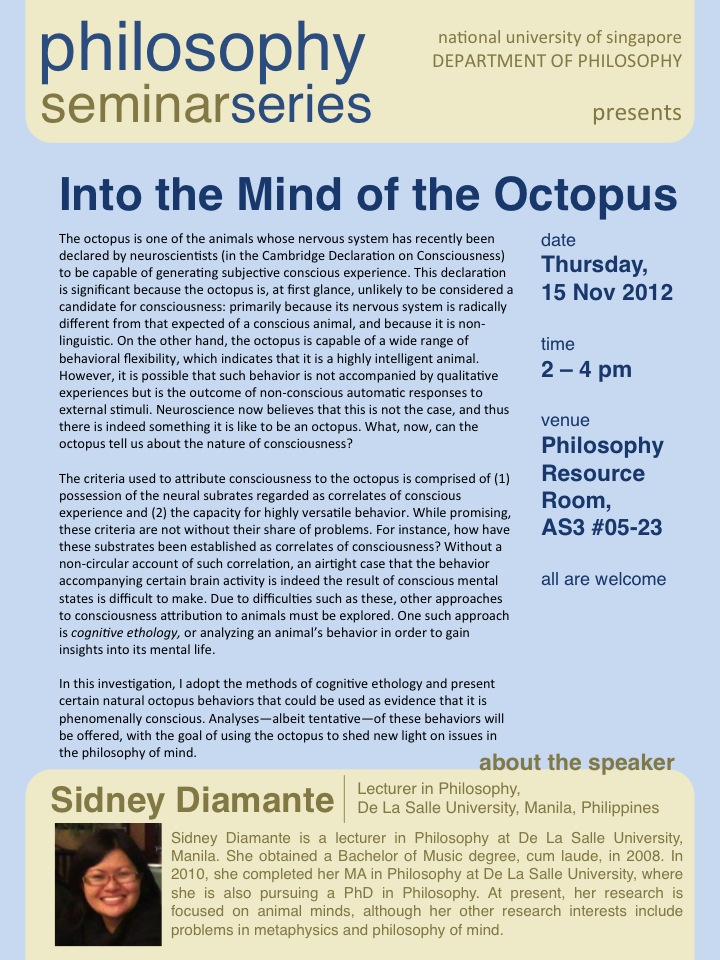The octopus is one of the animals whose nervous system has recently been declared by neuroscientists (in the Cambridge Declaration on Consciousness) to be capable of generating subjective conscious experience. This declaration is significant because the octopus is, at first glance, unlikely to be considered a candidate for consciousness: primarily because its nervous system is radically different from that expected of a conscious animal, and because it is non-linguistic. On the other hand, the octopus is capable of a wide range of behavioral flexibility, which indicates that it is a highly intelligent animal. However, it is possible that such behavior is not accompanied by qualitative experiences but is the outcome of non-conscious automatic responses to external stimuli. Neuroscience now believes that this is not the case, and thus there is indeed something it is like to be an octopus. What, now, can the octopus tell us about the nature of consciousness?
The criteria used to attribute consciousness to the octopus is comprised of (1) possession of the neural subrates regarded as correlates of conscious experience and (2) the capacity for highly versatile behavior. While promising, these criteria are not without their share of problems. For instance, how have these substrates been established as correlates of consciousness? Without a non-circular account of such correlation, an airtight case that the behavior accompanying certain brain activity is indeed the result of conscious mental states is difficult to make. Due to difficulties such as these, other approaches to consciousness attribution to animals must be explored. One such approach is cognitive ethology, or analyzing an animal’s behavior in order to gain insights into its mental life.
In this investigation, I adopt the methods of cognitive ethology and present certain natural octopus behaviors that could be used as evidence that it is phenomenally conscious. Analyses—albeit tentative—of these behaviors will be offered, with the goal of using the octopus to shed new light on issues in the philosophy of mind.
Philosophy Seminar Series.
Date: Thursday, 15 Nov 2012
Time: 2pm – 4pm
Venue: Philosophy Resource Room (AS3 #05-23)
Speaker: Sidney Diamante, Lecturer in Philosophy, De La Salle University, Manila, Philippines
Moderator: Dr. Neil Sinhababu
About the Speaker:
 Sidney Diamante is a lecturer in Philosophy at De La Salle University, Manila. She obtained a Bachelor of Music degree, cum laude, in 2008. In 2010, she completed her MA in Philosophy at De La Salle University, where she is also pursuing a PhD in Philosophy. At present, her research is focused on animal minds, although her other research interests include problems in metaphysics and philosophy of mind.
Sidney Diamante is a lecturer in Philosophy at De La Salle University, Manila. She obtained a Bachelor of Music degree, cum laude, in 2008. In 2010, she completed her MA in Philosophy at De La Salle University, where she is also pursuing a PhD in Philosophy. At present, her research is focused on animal minds, although her other research interests include problems in metaphysics and philosophy of mind.
